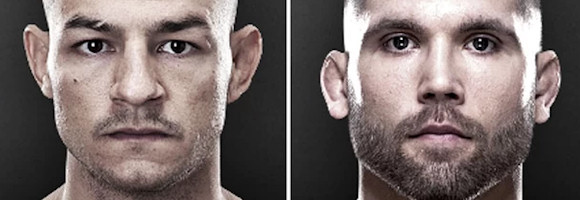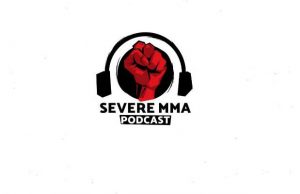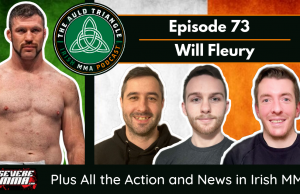

Another Saturday, another twenty plus UFC fights. On paper, these might just have been the weakest back-to-back events in UFC history as New Zealand and Texas were the fight homes for what, in practice, turned out to be a day of quite enjoyable battles without too much high level MMA on display before the biggest event of the year in Las Vegas next week. Let’s take a look at the main talking points.
Two events: Part two
A month after the first ever time that the UFC held two events on one day came the second time the UFC held two events on one day. This time, though, it was a lot less taxing. Those who struggled through the twenty odd back-to-back fights from Germany and Brazil a few weeks back know that isn’t something you want to be doing too often – especially considering the low quality of MMA on show.
Yesterday, though, brought a different dynamic. The events, from Aukland and Texas, were not one after another. The octagon visited New Zealand in the early morning with half a day’s break before the action in the lone star state kicked off. And although the fights were on a similarly average level, on paper at least, to the ones a few weeks back, yesterday had a true main event as the apex of the day’s festivities with Jeremy Stephens taking on Cub Swanson – a hugely more appealing headliner than Stipe Miocic and Fabio Maldonado. That made it all feel a little more worthwhile. Going forward, if the UFC want to continue with dual events then Australia/NZ timezone before America is definitely the way to go.
Saturday morning fights
The early morning saw the octagon travel to Auckland, New Zealand in a card which the kiwis had every right to be displeased with. The undercard was, maybe, the lightest ever and the headlining bout saw Nate Marquardt take on James Te Huna; two men who haven’t been able to buy a win of late. The story of the morning was really how to script it all went. Gian Villante was in a close fight again (this time he won), Neil Magny surprised people yet again getting the finish, Charles Oliveira came through the mud to get the submission, Robert Whittaker repeated his crisp kick boxing game and Jared Rosholt Jared Rosholted.
The main event was the only shock. Everyone knew Nate Marquardt had an advantage over James Te Huna on the ground but his ability to keep it there for long portions of the fight against a bigger man was very impressive. From those grappling exchanges we saw two important things. Firstly, the gulf between Te Huna and Marquardt is huge and the New Zealander will need to reduce it if he has any hope of keeping his job within the company. Secondly, and most encouragingly, it showed how good refereeing (by giving fighters time on the ground to work) is of tantamount importance. Marquardt was in mount for a long period before the submission came without doing much damage but was clearly setting up an attack on the arm. A bad referee (and we’ve seen plenty of them) would have been warning Marquardt to work (when he already was) and altered the fight. Thankfully John Sharp did his job correctly and the fight ended in spectacular fashion – other referees please take note.
Not everything is bigger in Texas
Then, in the usual Saturday night slot, San Antonio, Texas hosted the second ultimate fighting show in twenty four hours as the featherweights topped the bill. Again, it was a largely uneventful undercard. The pre-main event fights consisted of some inconsistent judging, a nice comeback to form from prospect Ray Borg, a bunch of borefests, two 38 second fights in a row and a debatable stoppage call from referee Kerry Hatley which saw Cody Gibson take the win over Johnny Bedford. The usual MMA hysteria ensued from the fans and company president but in reality the referee was in a tough spot as Bedford seemed unresponsive as he fell and landed but awoke milliseconds later; leaving the referee in a no-win position.
Then the main event went down. A fight between two bangers couldn’t disappoint – and it didn’t. Swanson, the quicker more technical striker, against Stephens, the powerhouse one punch knockout artist. It was a shoot-out all the way through. The early portions saw Swanson land the more volume with Stephens landing the power shots, dropping Cub on multiple occasions. By the midway point, though, Swanson was the fresher man and took over. He had Stephens badly hurt in the third and dominated the fourth. The finish, though, didn’t come but in the end it didn’t matter as he took the decision from every judge. The victory puts Swanson in prime position to challenge the winner of Jose Aldo and Chad Mendes later this year. Whoever it is, they won’t have an easy defence against the ever improving Cub Swanson.



